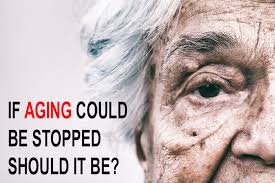
Breaking News
 Windows 11 QEMU/KVM Installation Guide in Linux Including TPM and Secure Boot
Windows 11 QEMU/KVM Installation Guide in Linux Including TPM and Secure Boot
 Silver: US Mint-Delays and Costco Limits Surface
Silver: US Mint-Delays and Costco Limits Surface
 Boots on the Ground...The news is getting worse so keep prepping.
Boots on the Ground...The news is getting worse so keep prepping.
 O'Keefe Media Group: Secret Service Agent Assigned to Vance Leaks Sensitive Information
O'Keefe Media Group: Secret Service Agent Assigned to Vance Leaks Sensitive Information
Top Tech News
 Superheat Unveils the H1: A Revolutionary Bitcoin-Mining Water Heater at CES 2026
Superheat Unveils the H1: A Revolutionary Bitcoin-Mining Water Heater at CES 2026
 World's most powerful hypergravity machine is 1,900X stronger than Earth
World's most powerful hypergravity machine is 1,900X stronger than Earth
 New battery idea gets lots of power out of unusual sulfur chemistry
New battery idea gets lots of power out of unusual sulfur chemistry
 Anti-Aging Drug Regrows Knee Cartilage in Major Breakthrough That Could End Knee Replacements
Anti-Aging Drug Regrows Knee Cartilage in Major Breakthrough That Could End Knee Replacements
 Scientists say recent advances in Quantum Entanglement...
Scientists say recent advances in Quantum Entanglement...
 Solid-State Batteries Are In 'Trailblazer' Mode. What's Holding Them Up?
Solid-State Batteries Are In 'Trailblazer' Mode. What's Holding Them Up?
 US Farmers Began Using Chemical Fertilizer After WW2. Comfrey Is a Natural Super Fertilizer
US Farmers Began Using Chemical Fertilizer After WW2. Comfrey Is a Natural Super Fertilizer
 Kawasaki's four-legged robot-horse vehicle is going into production
Kawasaki's four-legged robot-horse vehicle is going into production
 The First Production All-Solid-State Battery Is Here, And It Promises 5-Minute Charging
The First Production All-Solid-State Battery Is Here, And It Promises 5-Minute Charging
Lancet opens the door to treating aging as a disease

Implementation of the extension code XT9T in ICD-11 is not formal recognition of ageing as a disease. The WHO is recognizing ageing as a major disease risk factor and of the considerable public health problem posed by ageing-related diseases.
Big pharma might put more money into targeting the ageing process and extending human lifespan.
The Lancet papers discuss the physiological basis of endocrine-system ageing, the clinical implications of using testosterone to treat older men with hypogonadism, thyroid dysfunction during ageing, and the role of the endocrine system in frailty. Understanding how the endocrine system ages is paramount to realising the goal of healthy ageing—the door to which has at least now been opened by implementation of the 'Ageing-related' ICD-11 extension code.

 Storage doesn't get much cheaper than this
Storage doesn't get much cheaper than this

